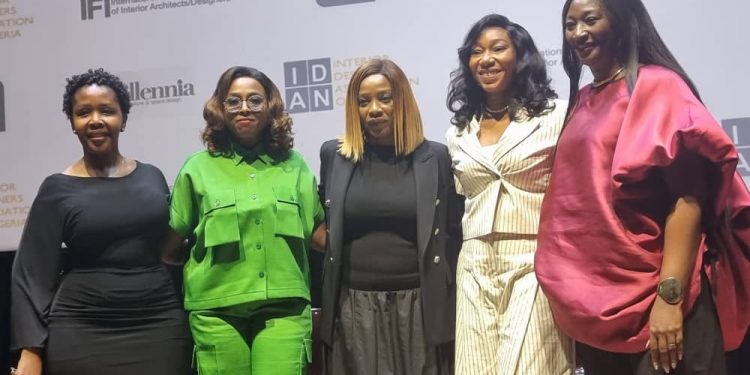The Interior Designers Association of Nigeria (IDAN) has called on interior designers across the country to embrace emotive design, lived experience, and artificial intelligence (AI) as essential tools for advancing the profession. The call was made during the celebration of the 2025 World Interiors Day, held recently in Ikoyi, Lagos, under the theme “Designing with Emotion; Building with Intelligence.”
IDAN President Jacqueline Aki, in her opening address, urged professionals in the industry to explore three critical intersections shaping the future of design. First, she highlighted emotive design—the capacity to create spaces that evoke deep emotional responses. “We must go beyond just creating beautiful spaces. We must build spaces that are healing, liberating, and uplifting,” she said. “Designers must draw from lived experiences, considering how people feel and interact with a space from morning to night—whether it fosters joy, inclusion, or dignity.”
Aki also emphasized that artificial intelligence should be viewed not as a replacement for human creativity, but as a supportive tool. “AI is a collaborator. It extends our thinking—it doesn’t override it,” she said. “The real challenge is to merge human and machine intelligence with emotional and ethical clarity, ensuring technology enhances human-centred design rather than dominating it.”
She noted that the celebration of World Interiors Day is more than a symbolic gesture, describing it as a global affirmation of the unseen minds and hands behind the environments where people live, heal, work, and grow. “This year’s theme urges us to question not only what we design, but how and why. Our work carries consequences—social, cultural, psychological, and environmental,” she said. “Design is not just decoration—it is strategy, wellbeing, and nation-building.”
Speaking further on the relevance of the theme, IDAN’s Assistant Secretary General, Dr. Omeba Ejiogu, explained that the concept was adapted to resonate with the Nigerian context. “We wanted it to feel relatable. Design is not just about aesthetics. It’s about how spaces function and how they make people feel. In today’s world, our designs must comfort emotionally and perform intelligently,” she said.
Ejiogu outlined how IDAN is supporting designers in Nigeria through training, mentorship, and real-life projects. One of such projects is the redesign of the Sickle Cell Ward at the Lagos University Teaching Hospital (LUTH), which she described as a testament to the power of healing design. “It’s about making an impact. We are building designers who don’t just have technical skills but design with empathy,” she added.
Looking ahead, Ejiogu expressed optimism about the African design industry, highlighting the continent’s untapped cultural and creative resources. “Africa is full of stories, materials, and ideas the world needs. We must continue building an Afrocentric design identity—bold, authentic, and innovative,” she said. “Our designers should be part of broader conversations—urban planning, education, healthcare—because we belong at every table where spaces are being shaped.”
She also encouraged designers globally to remain passionate and purpose-driven. “Whether you’re designing a luxury home, an office, or a hospital room, your work matters. You shape how people live and connect. Be bold, be thoughtful, and above all, design with heart.”
The keynote speaker at the event, James George, founder of HTL Africa Limited, added that his firm views the African design landscape as a melting pot of emotions that must be creatively harnessed. “As Africans, we must see the environment and its emotions as an integral part of our design process,” he said.
The event reaffirmed IDAN’s commitment to promoting emotionally intelligent and innovative design in Nigeria and across the continent, underscoring design’s crucial role in shaping human experiences and societal wellbeing.










